My favorite cities usually share one element in common: contrast, and surely, Frankfurt am Main knows a lot about contrast.
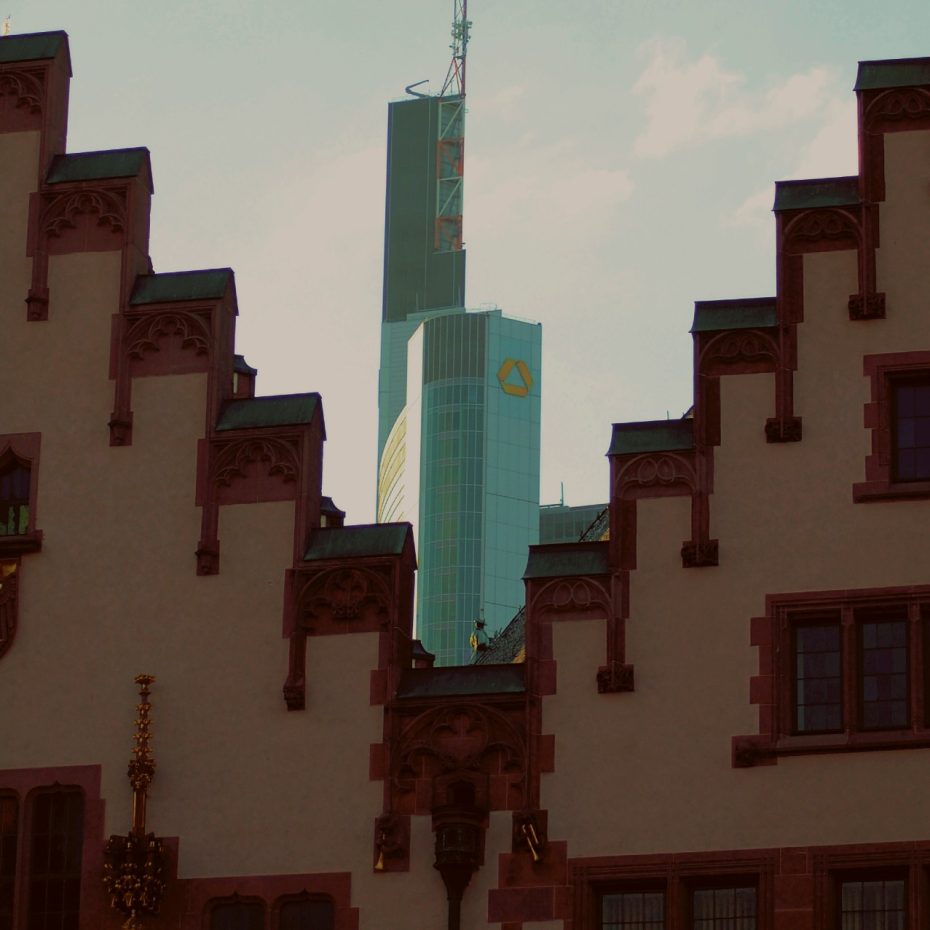
Generally, Frankfurt is overlooked as a tourist destination despite its fame as a business, congress, and conference city.
With one of the largest and busiest airports in the world, Lufthansa’s hub, and countless national and European railway connections, Frankfurt is a very important transportation point that has yet to establish itself as a city worth visiting on its own.
For tourists, Frankfurt is often simply an intermediate city between point A and point B.
xixerone
However, the contrast of the city, its cosmopolitan life, and the few glimpses of the medieval city that survive to our days make Frankfurt a destination to discover in the already oversaturated Western Europe travel scene.
In case you missed it…
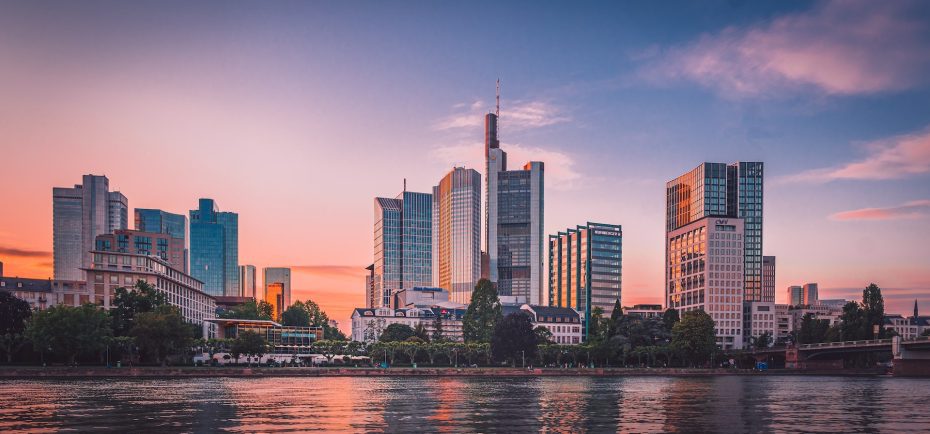
What Makes Frankfurt Frankfurt
In the early 20th century, Frankfurt was not very different from other German cities: low-rise houses, Gothic buildings, half-timbered constructions, gardens, parks, and a historic center full of small alleys and old houses.
During World War II, the city was reduced to little more than rubble. Only a handful of historic buildings survived, and practically none remained intact.
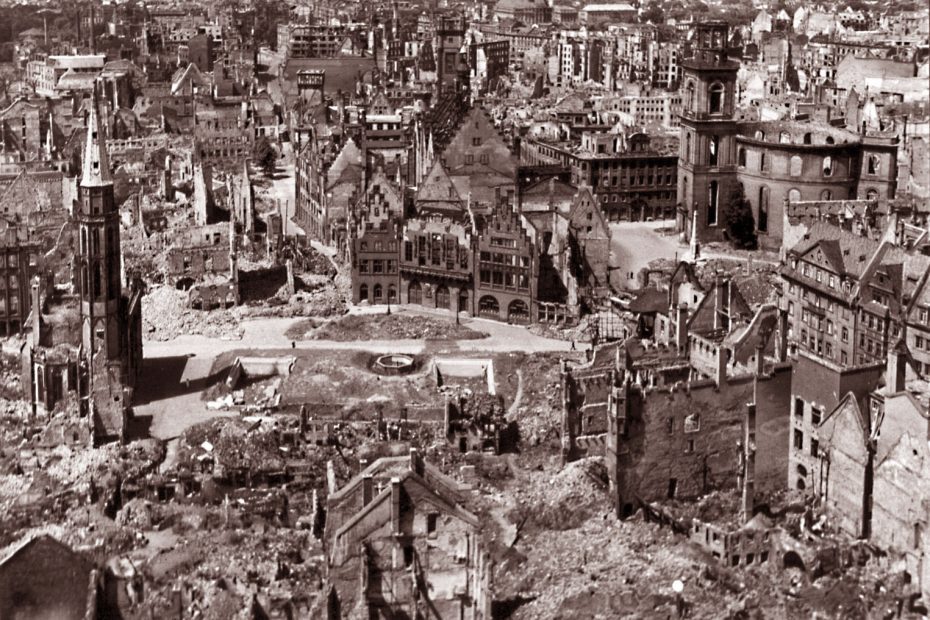
However, unlike other German cities like Hamburg, Cologne, or Dresden, which were totally or partially rebuilt after World War II following their original patterns and architectural styles, Frankfurt’s authorities chose to create a new city. They would reconstruct some of the original buildings but also use the spaces opened by the bombings to construct gleaming skyscrapers and make Frankfurt the economic capital of the Federal Republic of Germany.
Several reasons were given for this decision, including the need from the 1950s onwards to attract foreign investments that would help rebuild the country’s economic fabric and the creation of the Soviet-influenced German Democratic Republic, which would “keep” the most populous city, Berlin, and the former congress and convention capital, Leipzig.
These causes led to the Frankfurt we see today: a vibrant, cosmopolitan, and dizzying metropolis, albeit lacking the traditional European charm we usually associate with Germany.
Guided Tours & Activities for a Short Visit to Frankfurt
A Half-Day Walking Journey through Frankfurt’s Main Attractions
This route was designed for travelers with a long layover in Frankfurt or those staying a day in the city.
My personal take: I have personally verified this itinerary’s doability as I did it myself during a 6-hour layover on my return China trip.
Frankfurt Airport is only 12 minutes away from the central station (Hauptbahnhof) by frequent commuter trains or S-Bahn. Once at the airport, just follow the signs. If you are at Terminal 2, you will need to use the Skyrail to get to the station.
The station is underground. Once in the lobby, look for the platform heading towards “Frankfurt Hauptbahnhof,” abbreviated F-Hbf, serviced by lines S8 and S9.
A particularity of German commuter trains is that there are no barriers at the stations, so make sure you validate your ticket before boarding.
Frankfurt’s S-Bahn train lines travel through a dense forest en route to the city center, which forms a green ring around the city and offers lovely views.
Once at the main station, before heading out into the city, I recommend finding the exit that leads to the station’s lobby to appreciate the magnitude of Germany’s busiest railway terminal fully.
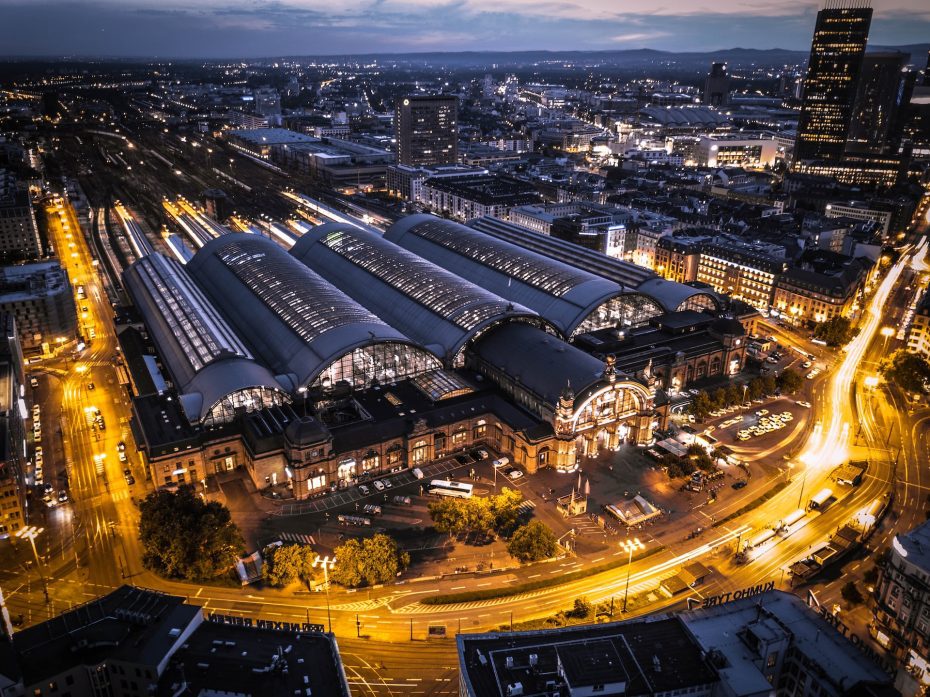
Completed in 1888, the station was the largest in the world until 1915, when it was surpassed by Leipziger Hauptbahnhof. Its arched roof was one of the first wrought-iron engineering works in the city.
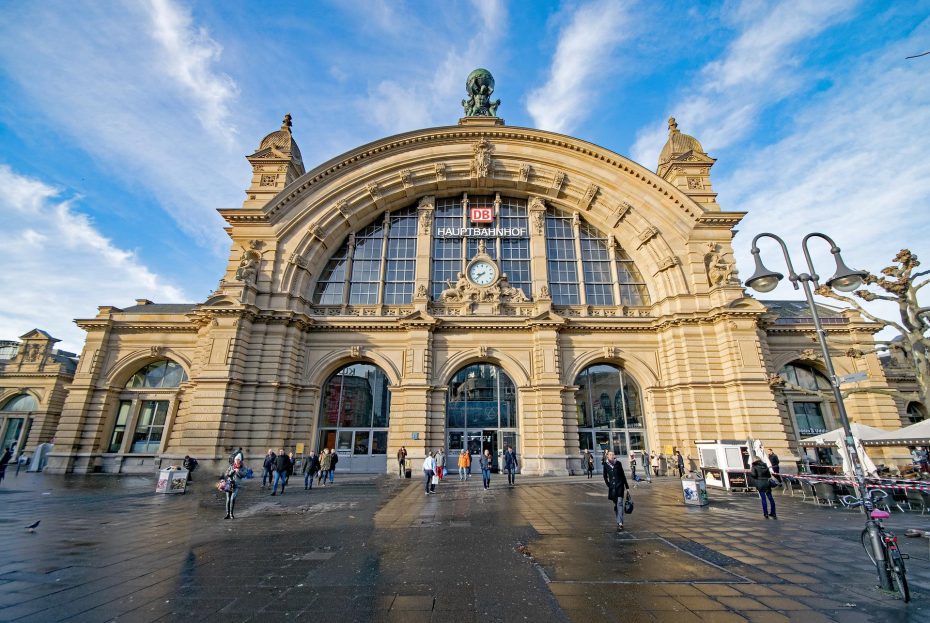
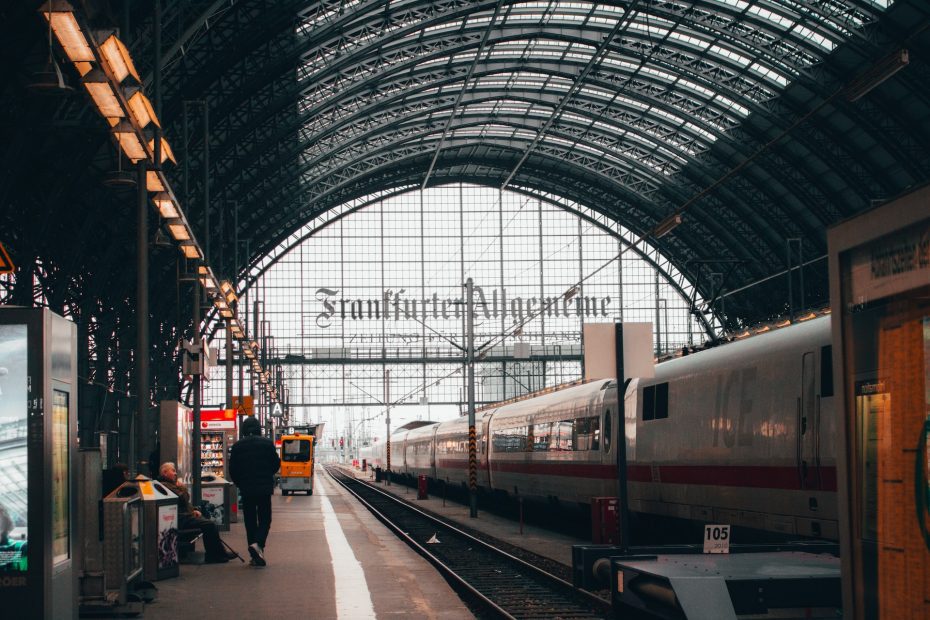
Once outside the station, the walk takes us along Kaiserstrasse, the heart of Frankfurt’s red-light district. During the day, the street doesn’t make much of an impression, but as night falls, the neon lights of the sex shops turn on, revealing one of Germany’s most infamous nightlife entertainment areas.
The intersection of Kaiserstr. and Gallusanlage holds a surprise. If you’re from Europe, it’s one of the images you’re probably used to seeing on the news whenever they mention economic news about the euro, inflation, and exchange rates.
The European Central Bank and probably one of Germany’s ugliest public sculptures, though one of the most famous, are in front of us at Willy-Brandt Platz.
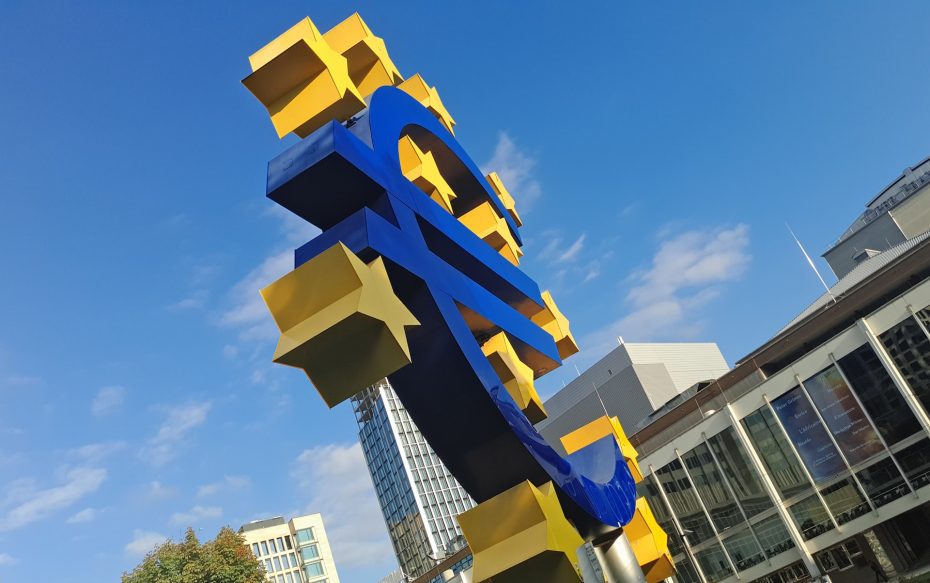
After the customary photo in front of the Euro symbol, we continued along Kaiser Street to encounter two very different city icons: the Commerzbank building, which is 259 meters (850 ft) tall and held the title of the tallest building in the European Union until the completion of the Varso building in Warsaw in 2021, and the Frankfurter Hof Hotel, historically one of the most luxurious and iconic hotels in Frankfurt.
In case you missed it…
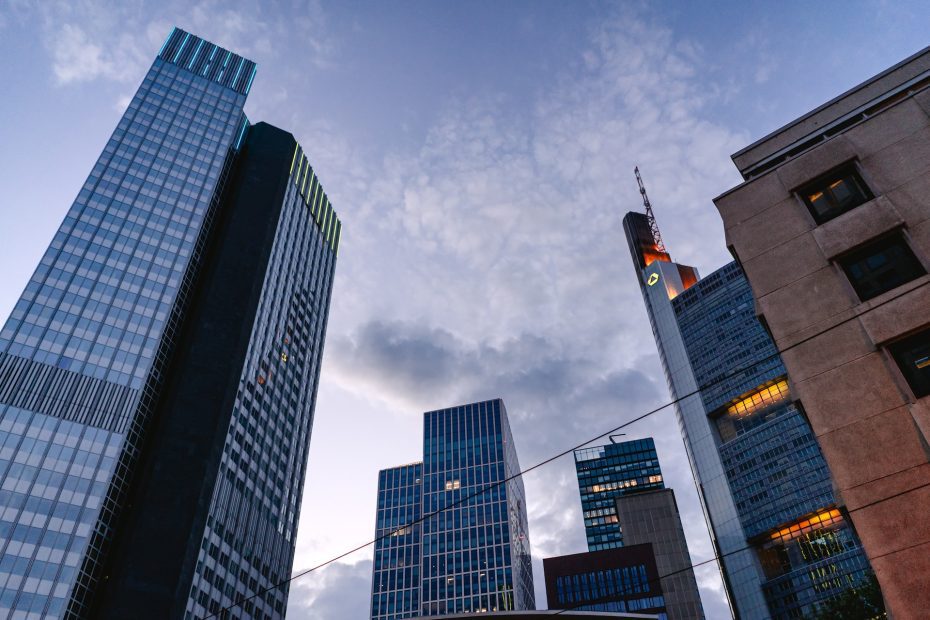
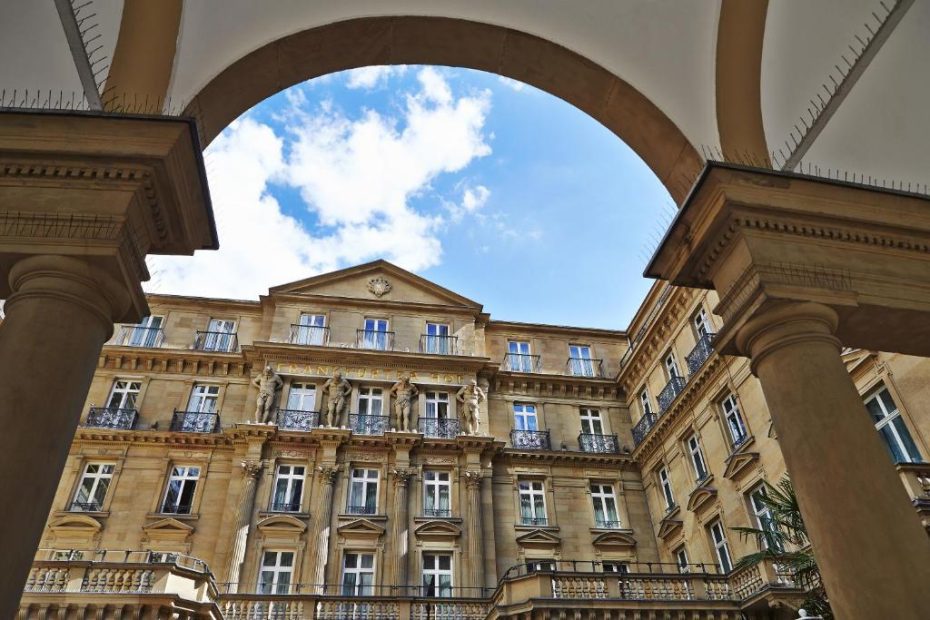
Currently part of the Steigenberger group, Frankfurter Hof is the place where famous people stay when visiting the city. I was lucky enough to stay on a previous trip and have to admit that it is a fantastic hotel.
We are now heading towards Goethe Platz, continuing through Rossmarkt towards Clock Square or Hauptwache, characterized by its clock and the small baroque house that is now a café but was once a police station, a prison, and later became an Underground station lobby.
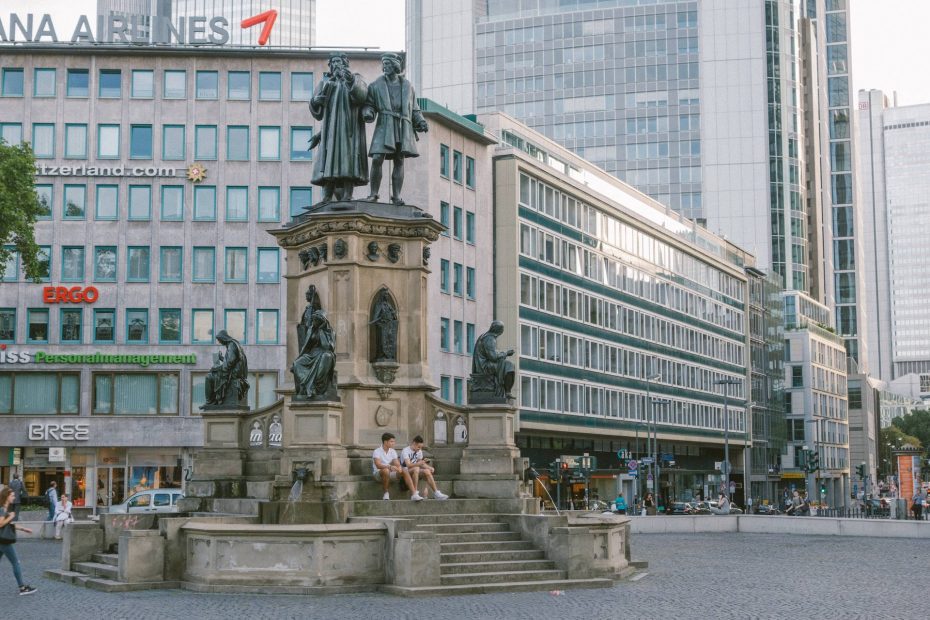
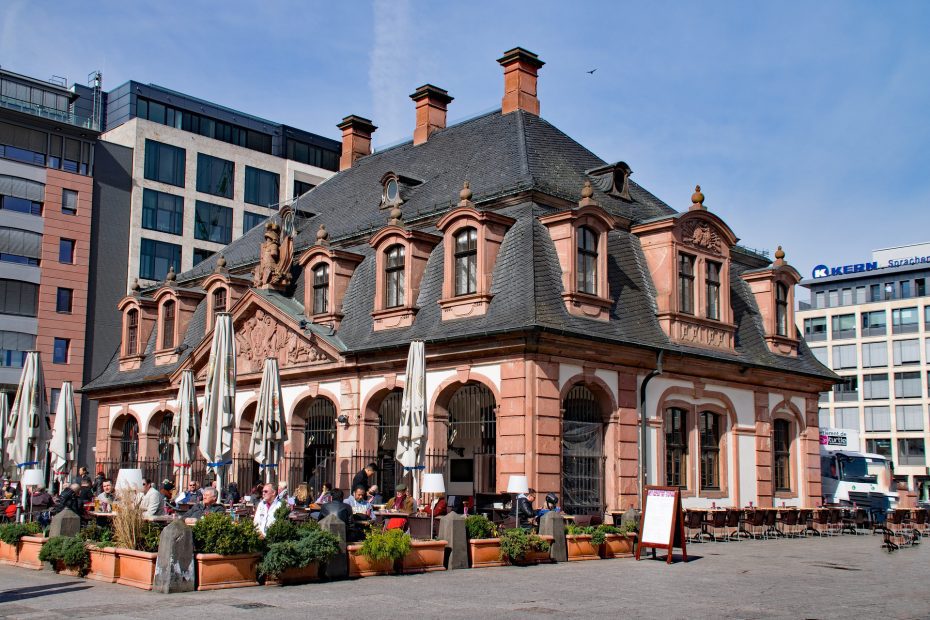
From here, we get to Eschenheimer Turm, the famous medieval tower of Frankfurt, one of the last remaining examples of such towers in Europe. It used to be the gateway to the walled city, but now traffic flows around it instead of passing through it. On its ground floor, there is a popular café, and right across from it is the Eschenheimer Tor (Eschenheim Gate) metro station, named after the tower’s historical function.
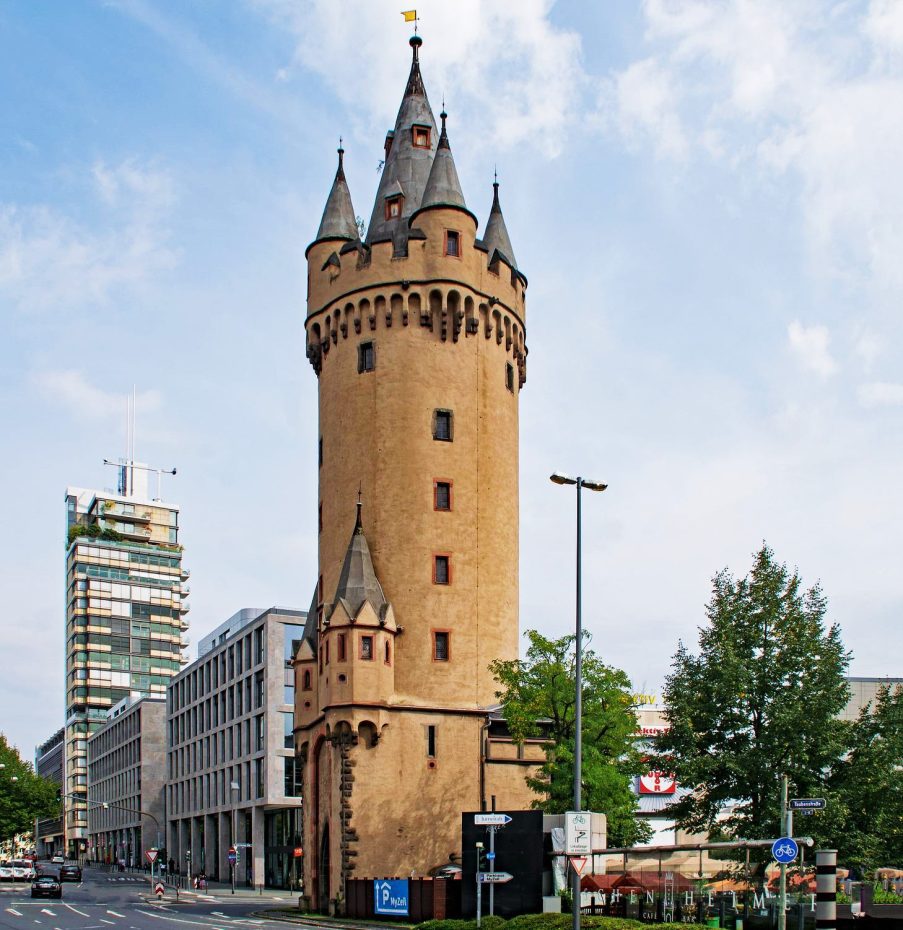
Returning to Clock Square, you’ll find the place with the best free views of Frankfurt, the café at the Kaufhof department store. Located on the seventh floor, it may have one of the most expensive coffees in the city, but it also has the most scenic terrace to appreciate views of the old town and an impressive panorama of the skyscrapers in the financial district. It is not necessary to buy anything to enjoy the views, but it is the best place to relax with a coffee after a long walk.
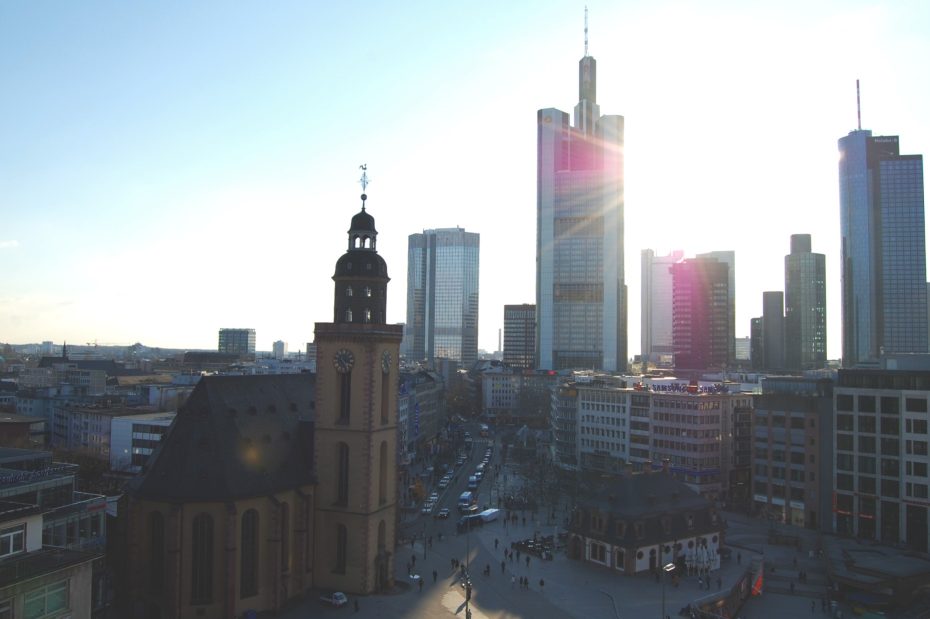
The pedestrian street that extends to the east is known as The Zeil and is the city’s premier shopping area, featuring stores ranging from budget brands like Zara and H&M to upscale ones like Gucci.
If shopping is not your thing, you can turn south on Liebfrauenstrasse to reach the Old Town area.
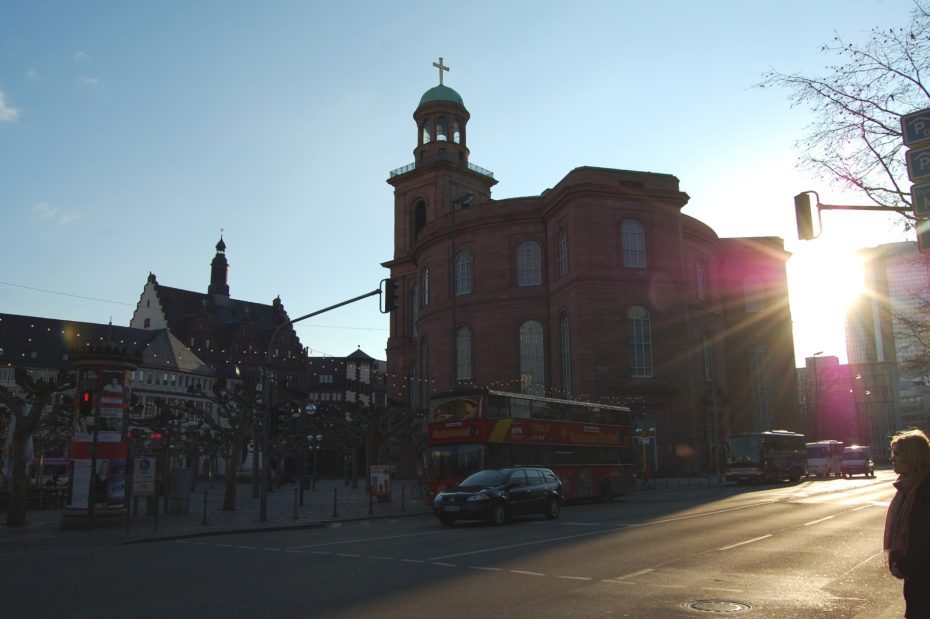
The first building worth mentioning in the Old Town is the Paulskirche, a red church with an almost circular shape right at the entrance of the Römerberg square, one of the most beautiful squares in Germany.
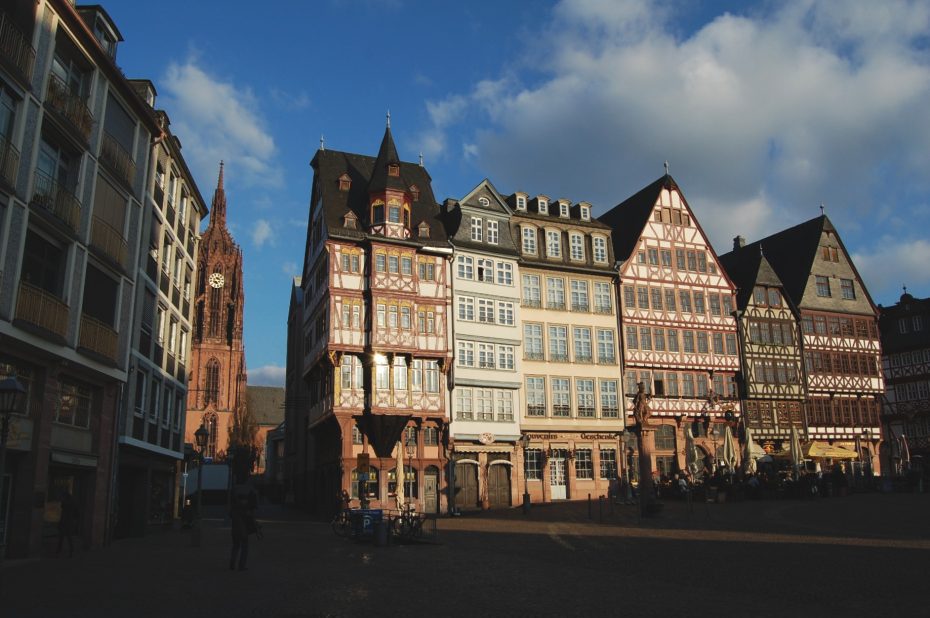
The red mixed-style building in front of the church is the seat of the Town Council.
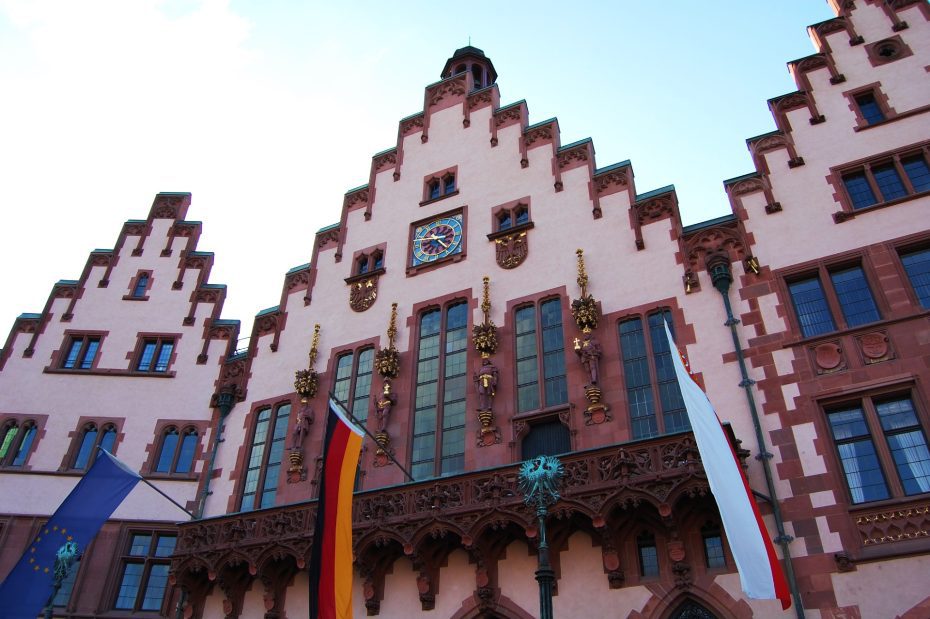
Literally translatable as “Mountain of the Romans,” Römerberg gets its name from its main building, the Römer or Frankfurt City Hall, which occupies the most imposing building in the square and is one of the must-see attractions in Frankfurt.
In the center of the square, you can admire a fountain crowned by a delicate bronze statue representing Justice, a work by Phillip Uffenbach. A little higher up, we find the column of Minerva wielding the shield of the Gorgon and her characteristic spear.
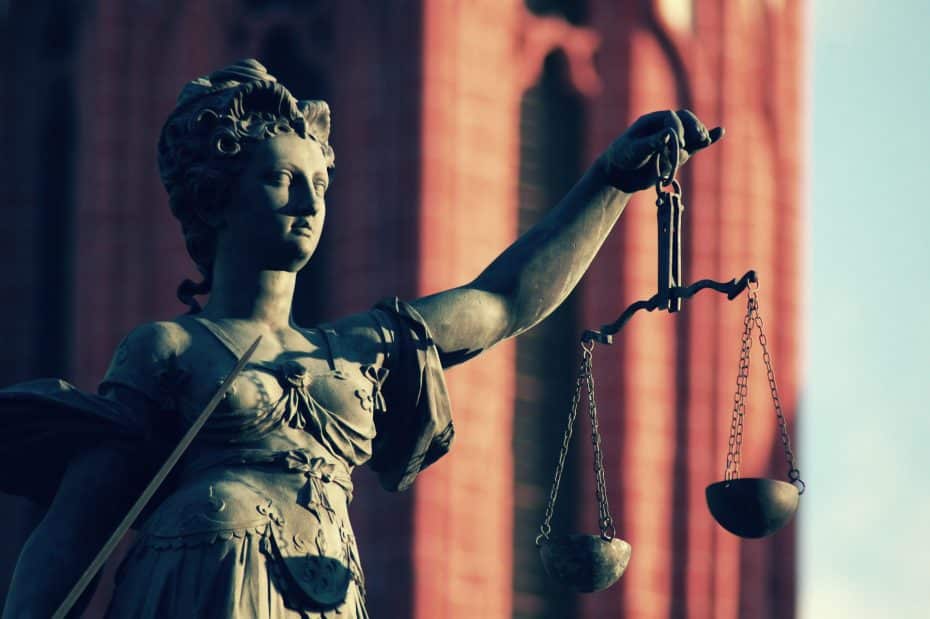
The northern part of the square is adorned by a series of wooden buildings typical of the Rhine Valley style. These houses are home to cafés, pastry shops, and souvenir stores. Additionally, the small Gothic church known as Nikolaikirche or St. Nicholas Church stands out.
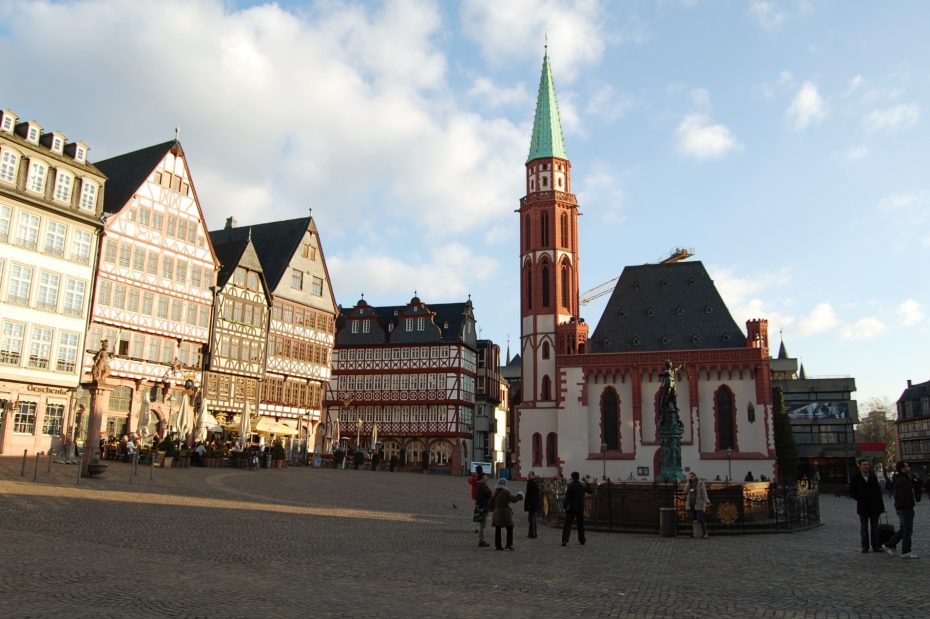
The charm of this plaza lies in the fact that, while most of the buildings date back to the 1960s, it is an exact replica of its medieval predecessor.
Right behind the Römer lies one of the few buildings that survived the Allied bombings, the Frankfurt Cathedral or Dom. While the 90-meter-high (300 ft) Gothic masterpiece withstood the onslaught of the Allied bombs, its interior was ravaged by fire, and the external structure suffered severe damage. The restoration of the church was completed in the 1950s.
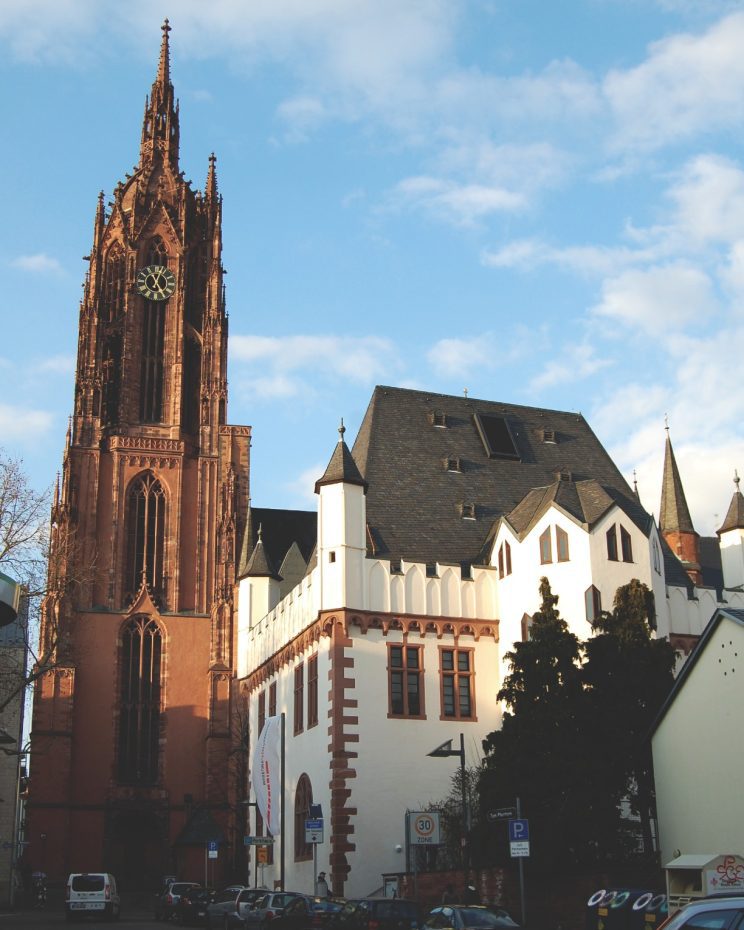
At this point, during our walking tour through Frankfurt, the most scenic route would be to head towards the banks of the Main River to take in the views from the riverside promenade. However, depending on your level of fatigue, you can also take the U-Bahn back to the station to return to the airport.
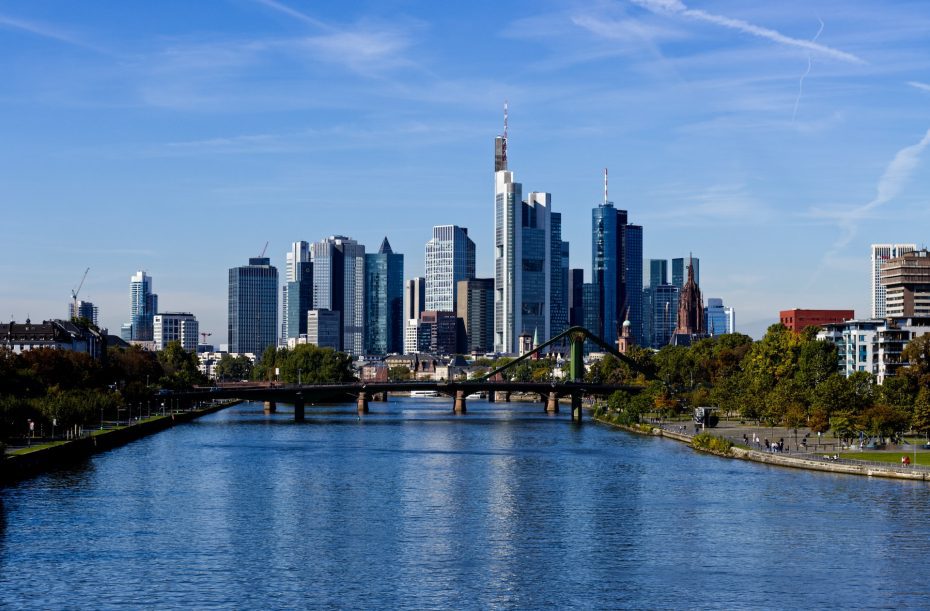
A word of advice: Remember that you must check in again for your onward flight, so it is best to adapt this route to your available time. Don’t miss your connection!


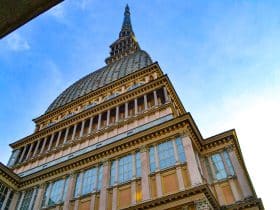
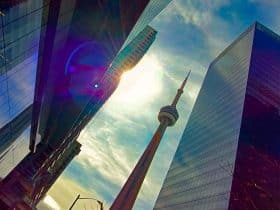
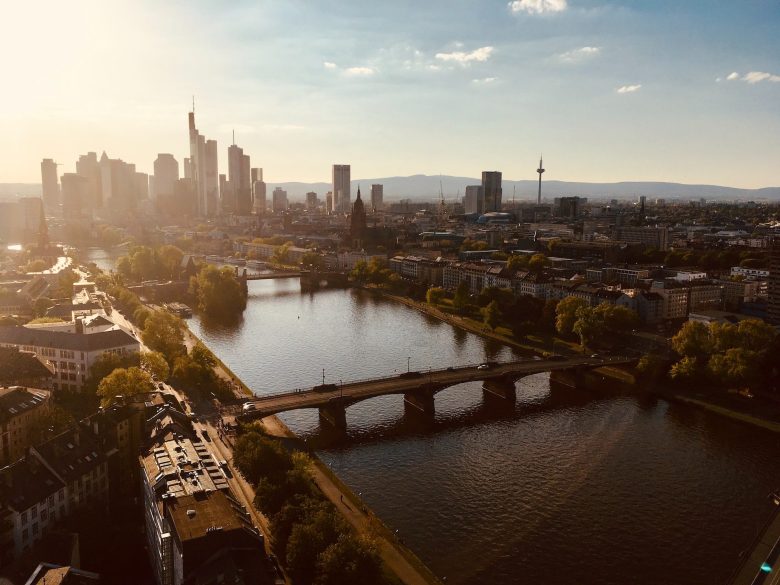
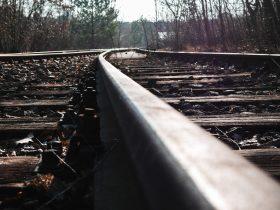
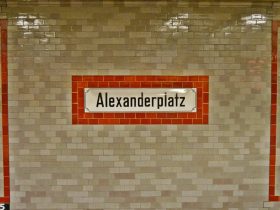
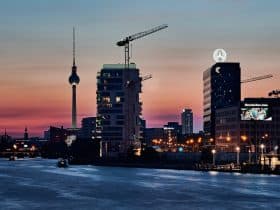
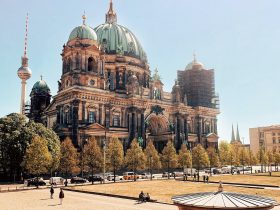
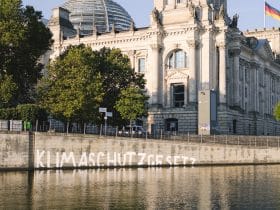

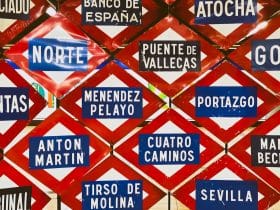
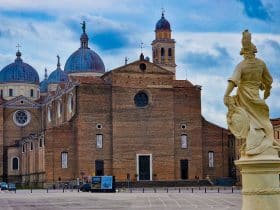
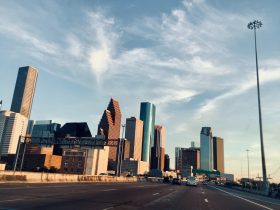
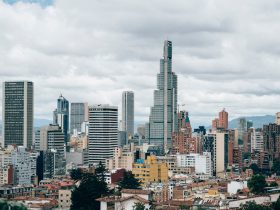
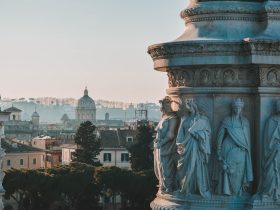
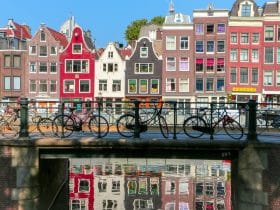
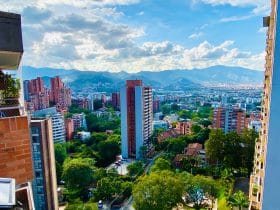
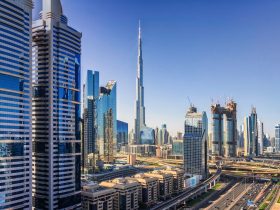
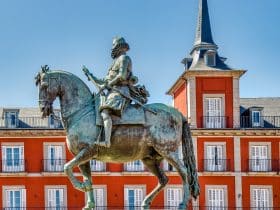
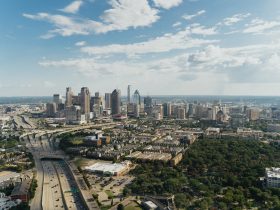
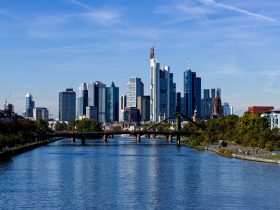
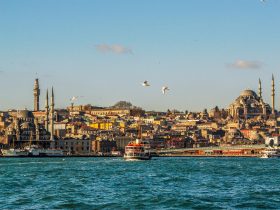
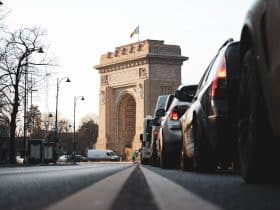

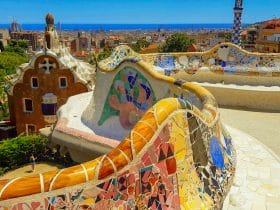
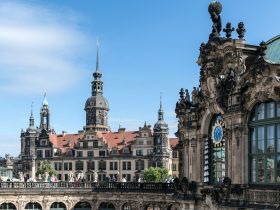
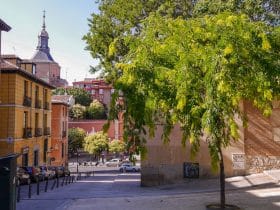
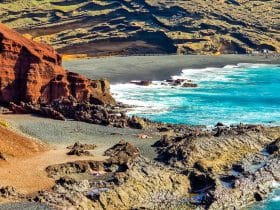
Leave a Reply
View Comments